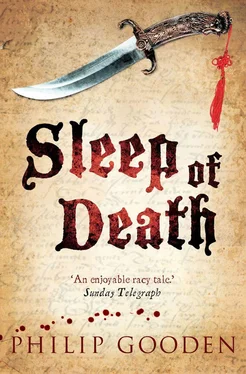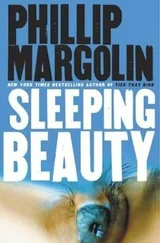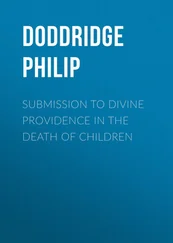Philip Gooden - Sleep of Death
Здесь есть возможность читать онлайн «Philip Gooden - Sleep of Death» весь текст электронной книги совершенно бесплатно (целиком полную версию без сокращений). В некоторых случаях можно слушать аудио, скачать через торрент в формате fb2 и присутствует краткое содержание. Год выпуска: 0101, ISBN: 0101, Издательство: Constable & Robinson, Жанр: Исторический детектив, на английском языке. Описание произведения, (предисловие) а так же отзывы посетителей доступны на портале библиотеки ЛибКат.
- Название:Sleep of Death
- Автор:
- Издательство:Constable & Robinson
- Жанр:
- Год:0101
- ISBN:9781472104311
- Рейтинг книги:5 / 5. Голосов: 1
-
Избранное:Добавить в избранное
- Отзывы:
-
Ваша оценка:
- 100
- 1
- 2
- 3
- 4
- 5
Sleep of Death: краткое содержание, описание и аннотация
Предлагаем к чтению аннотацию, описание, краткое содержание или предисловие (зависит от того, что написал сам автор книги «Sleep of Death»). Если вы не нашли необходимую информацию о книге — напишите в комментариях, мы постараемся отыскать её.
Sleep of Death — читать онлайн бесплатно полную книгу (весь текст) целиком
Ниже представлен текст книги, разбитый по страницам. Система сохранения места последней прочитанной страницы, позволяет с удобством читать онлайн бесплатно книгу «Sleep of Death», без необходимости каждый раз заново искать на чём Вы остановились. Поставьте закладку, и сможете в любой момент перейти на страницу, на которой закончили чтение.
Интервал:
Закладка:
When I am sure that there is nothing more I can do for him I lock the door of the room and leave him to die.
I cannot deny that this business is not going according to plan. By this time perhaps there is no plan. The murder of Sir William Eliot was carefully plotted and executed. It was an act of revenge, of mischief, and of other things besides. But with the other murders that have proceeded from that, I cannot say. Once you have embarked on this bloody course there is no turning back.
It is tedious.
Like in all human affairs, the more often it is done the easier it is done, with less scruple and heart-searching.
But it is also pleasurable. I had no intention of killing Ralph Ransom. The idea occurred to me as I was talking to him. With Francis and the apothecary, I set out to kill them. The player I left to others: obviously a mistake. But with Ralph there was the word, then there was the blow. I am like a fencer who cannot foresee the direction a bout will take, the moves of his opponent, the counter-strokes he himself will employ, but must rely only on his skill and quick wits. One day soon his arm will tire or his wits grow dull and he will lose, but until that time he loves his own craftiness.
These murderous actions, planned or unplanned, create their own consequences and sequels. Now I have to dispose of Ransom’s body. Lug his fatness down the stairs and towards the river when the tide is high in the small hours of the morning. I could enlist someone to help me — Southwark swarms with the lawless and the desperate. But every accomplice is another mouth to feed or to silence. I shall do this alone.
As for Master Nicholas Revill, fat Ralph might be right. Perhaps the steward did inflict some mortal wound on the player and he is even now dying or dead in the woods. Or if he is not, then he might be scared for his life and have run away from London town. So there will be a gap in the play this afternoon.
But I expect to see him again. I will be prepared for that. I don’t know what I will do but it will be something fitting.
‘My God,’ said Richard Burbage. ‘What happened to you?’
He was preparing for his first appearance, all in black in the court of King Claudius and Queen Gertrude. In the background I saw WS looking curiously in my direction. He too was arrayed in his opening costume, the suit of armour worn by the Ghost of Hamlet’s father.
‘I fell into a fight.’
Burbage looked slightly displeased.
‘Did you win?’
‘I suppose so,’ I said.
‘I shouldn’t like to see your opponent.’
‘I don’t think you will.’
‘You’ve been away, Nick. And away in the wars to judge by the look of you.’
This was Master WS, who appeared at my shoulder as soundlessly as if he really were the Ghost that he played.
‘Away?’
‘I saw you this morning on the back of a farm cart coming up from the country.’
This was true. After quitting Adrian and gathering up his black hat and cloak (which I had brought to the theatre) I started to run for the town. Within a few hundred yards exhaustion overtook me. I stumbled and fell, and might have been lying there till this moment, had not a horse and cart trundled by. At first the carter suspected me for a thief and my ragged, bloody state for a ploy. I was able to convince him that it was I who was the victim of thieves, and he allowed me to slump into his conveyance. So I returned to London as I had left it, in the back of a jolting cart.
The carter was ferrying sackfulls of apples. Their sharp-sweet, heady smell crept over me as I lay huddled in the bottom of the cart, trying to make myself as small as possible. I drifted into an uneasy sleep, in which memories of stealing apples in Bristol orchards were wiped away by frantic chases through dark forests, A rat-like man was coming to cut off a tail which I had grown. My father’s body went sailing through the air to land with a thud in the communal grave of plague victims. The cart went bumping on its way to the markets north of the river and I awoke just before we reached the Bridge. It must have been somewhere around this point that Master WS had seen me and my strange mode of conveyance.
‘Yes,’ I said, ‘I suppose you could say that I have been away.’
‘Before the climax of a play the hero shall withdraw from the action,’ said Master WS, reminding me of his words on the previous afternoon, in what was another life. Although he was wearing armour he looked not warlike but melancholy, befitting a spirit come from the underworld with no happy news.
‘We must speak after the performance,’ said Dick Burbage to me. ‘I have something to say to you.’
‘Yes, we shall speak,’ said Master WS, Burbage’s fellow-shareholder.
A trumpet sounded the beginning of things. The musicians fluted and sawed from the gallery.
‘I must be on,’ said Master WS. He vanished.
‘And I,’ said Burbage.
I went to change in the tiring-house, although my entrance was many scenes away. Under the eyes of Alfred the tireman, I donned my costume as Lucianus, the poisoner in the play-within-the-play. I planned to add one or two items later, but needed to do it out of his sight.
My head was whirling with madcap schemes and plans. I think that I was half-mad at this time. Like a man in a maze I was struggling to find the centre, but in no very ordered fashion.
My reasoning went as follows: old Sir William Eliot had been murdered, of that there was no doubt. The circumstances of his death provided an uncanny parallel with the circumstances of old Hamlet’s death in the play by Master WS. Both victims were sleeping in an orchard, both were taken by surprise, cut off without time to prepare for death. A poison was poured into the ear of the dormant King and the same method most probably employed on Sir William. There was a brother — Claudius, Sir Thomas — hovering off-stage and waiting to take up the reins of a impatient, lascivious wife, whether Gertrude or Lady Alice. There were sons, although each had reacted differently to the father’s death: Hamlet was deeply unhappy with his mother’s choice of a second husband and bitter because he sees the throne of Denmark slipping out of his grasp; young William Eliot was grieving for his father but claimed to respect (rather than suspect) his uncle and to love his mother. Nevertheless William had been troubled enough by the parallels between art and life to ask me to ‘watch and listen’ in his own house.
I might have been inclined to put William’s sense that all wasn’t well down to fancy or imagination. Since he was afflicted by the need to model himself on Hamlet, what more natural than that he should assume his hero’s distrust of the world, and the feeling that everything in it was rank and rotten, an unweeded garden? But the events of the past few days, from the drowning of Francis to my own scrape with death, had shown me that William’s intuition was right. All was very far from being well.
The question I came back to, the one that I’d entered in Greek lettering in my notebook, was: who?
Who had been responsible for the death of Sir William, the death of Francis, the employment of Adrian and fat Ralph to kidnap and kill me?
There were two or three possibilities, as I saw it.
One was that Lady Alice had plotted to kill her husband — for the usual reasons, a jaded appetite and the wish for change. What I had seen of the couple from my vantage-point in the pear tree showed how she despised her first husband and was at one with her second. Some things would have been beyond a woman’s strength, I judged, and she would have needed help, but when did a beautiful and dangerous woman ever lack a man’s hands? She could have hired assistance, or been in league with Sir Thomas. An objection to this was the appearance of Adrian on the scene. Would he have been taken on, in this vicious capacity, by the woman or the man who had so recently discharged him from their service? Unless this was all a ploy. I went round in circles.
Читать дальшеИнтервал:
Закладка:
Похожие книги на «Sleep of Death»
Представляем Вашему вниманию похожие книги на «Sleep of Death» списком для выбора. Мы отобрали схожую по названию и смыслу литературу в надежде предоставить читателям больше вариантов отыскать новые, интересные, ещё непрочитанные произведения.
Обсуждение, отзывы о книге «Sleep of Death» и просто собственные мнения читателей. Оставьте ваши комментарии, напишите, что Вы думаете о произведении, его смысле или главных героях. Укажите что конкретно понравилось, а что нет, и почему Вы так считаете.












